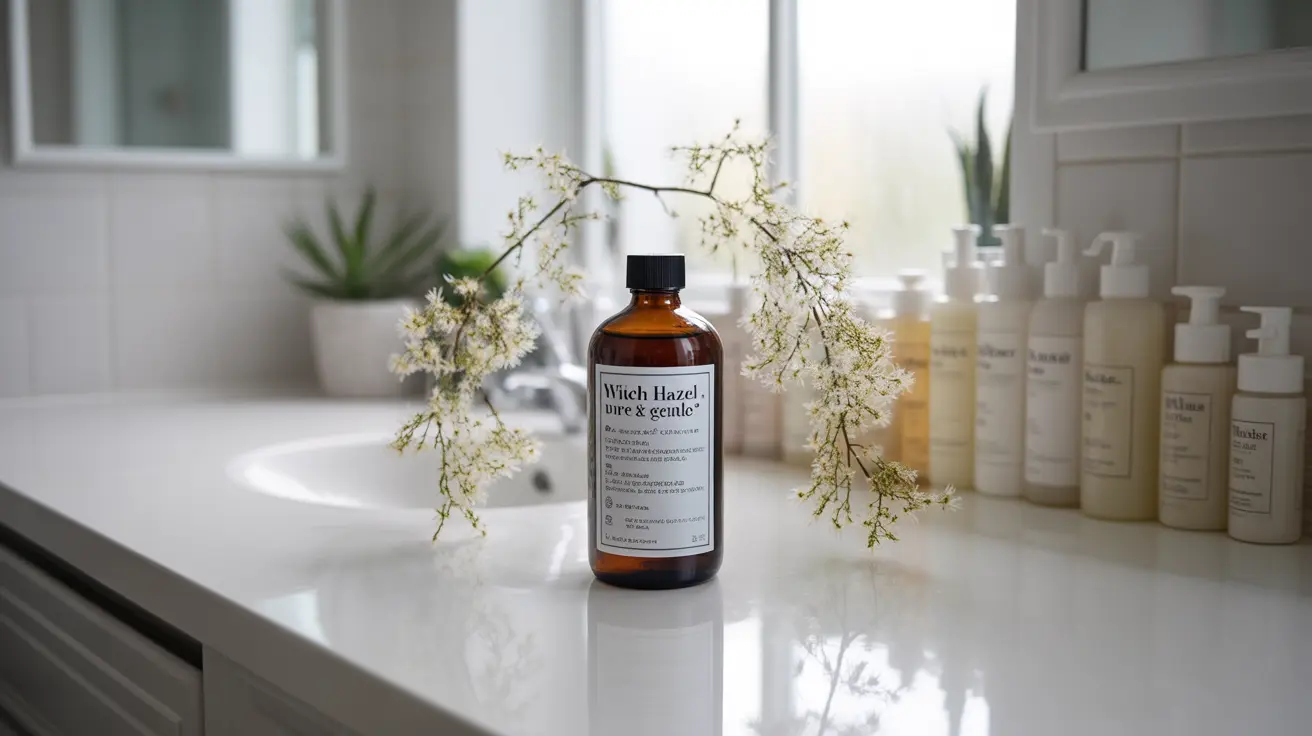Witch hazel has emerged as a popular natural skincare ingredient, particularly for facial care. This botanical extract, derived from the witch hazel shrub, offers various potential benefits for skin health. Understanding its proper use and effects can help you determine if it's right for your skincare routine.
In this comprehensive guide, we'll explore the benefits, potential risks, and best practices for using witch hazel on your face, helping you make informed decisions about incorporating this natural astringent into your skincare regimen.
Understanding Witch Hazel's Properties
Witch hazel contains natural compounds including tannins, polyphenols, and volatile oils that contribute to its skincare benefits. These components give witch hazel its astringent properties and anti-inflammatory effects, making it a potentially valuable addition to your facial care routine.
Key Benefits for Facial Skin
Oil Control and Pore Reduction
One of witch hazel's primary benefits is its natural astringent properties, which can help control excess oil production and temporarily tighten pores. This makes it particularly beneficial for those with oily or combination skin types.
Anti-inflammatory Properties
The natural compounds in witch hazel can help reduce inflammation and soothe irritated skin. This property makes it potentially helpful for addressing minor skin irritations and temporary redness.
Acne Management
Thanks to its antimicrobial and anti-inflammatory properties, witch hazel may help manage mild acne breakouts. It can help remove excess oil and bacteria from the skin's surface while potentially reducing inflammation associated with acne lesions.
Safe Application Methods
Proper Dilution
Most commercial witch hazel products come pre-diluted and formulated for facial use. If using pure witch hazel extract, it's essential to dilute it properly to avoid potential irritation.
Application Technique
Apply witch hazel using a clean cotton pad, gently sweeping it across cleansed skin. Avoid harsh rubbing, which can cause irritation. Use once or twice daily, depending on your skin's tolerance.
Important Considerations and Precautions
Skin Type Compatibility
While witch hazel can benefit many skin types, those with dry or sensitive skin should approach it with caution. Start with minimal use and observe how your skin responds before increasing frequency.
Product Selection
Choose alcohol-free formulations when possible, as these tend to be less drying. Look for products that combine witch hazel with hydrating ingredients like aloe vera or glycerin.
Frequently Asked Questions
What are the benefits of using witch hazel on your face for acne and oily skin?
Witch hazel can help control excess oil production, temporarily tighten pores, and reduce inflammation associated with acne. Its natural astringent properties may help remove impurities while its anti-inflammatory compounds can soothe irritated skin.
Can witch hazel cause dryness or irritation when applied to facial skin?
Yes, witch hazel can potentially cause dryness or irritation, especially in those with sensitive or dry skin. This is more likely with alcohol-based formulations or when the product is used too frequently.
How should I apply witch hazel safely on my face to avoid irritation?
Apply witch hazel with a clean cotton pad after cleansing, using gentle sweeping motions. Start with once-daily application and adjust frequency based on your skin's response. Always follow with a moisturizer to prevent dryness.
Is witch hazel suitable for sensitive skin or skin conditions like rosacea?
People with sensitive skin or conditions like rosacea should exercise caution when using witch hazel. It's best to consult with a dermatologist before use, as it may exacerbate sensitivity in some cases.
What precautions should I take before using witch hazel facial products?
Perform a patch test before full facial application, choose alcohol-free formulations when possible, and start with minimal use. Discontinue use if irritation occurs, and always keep the product away from your eyes.




